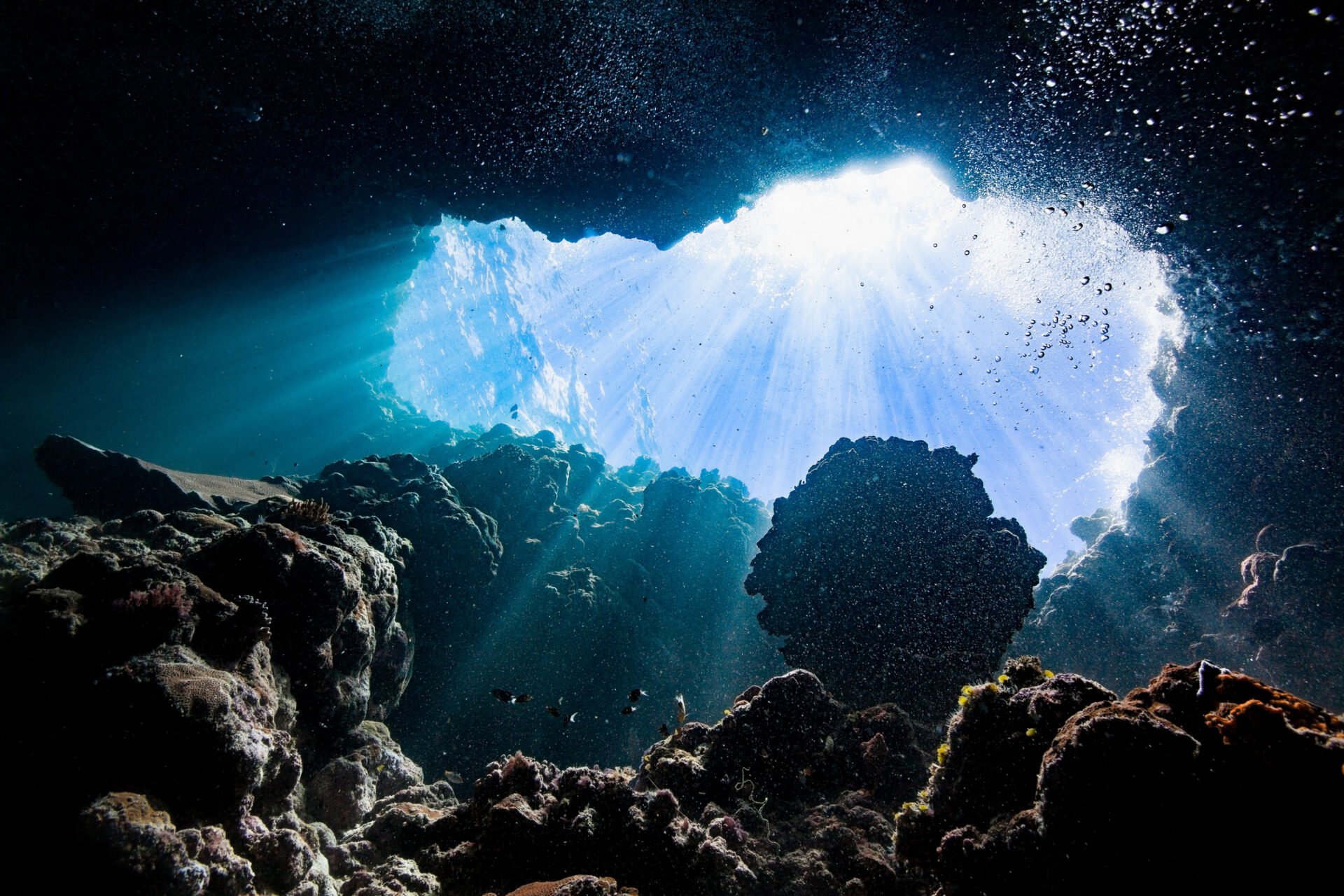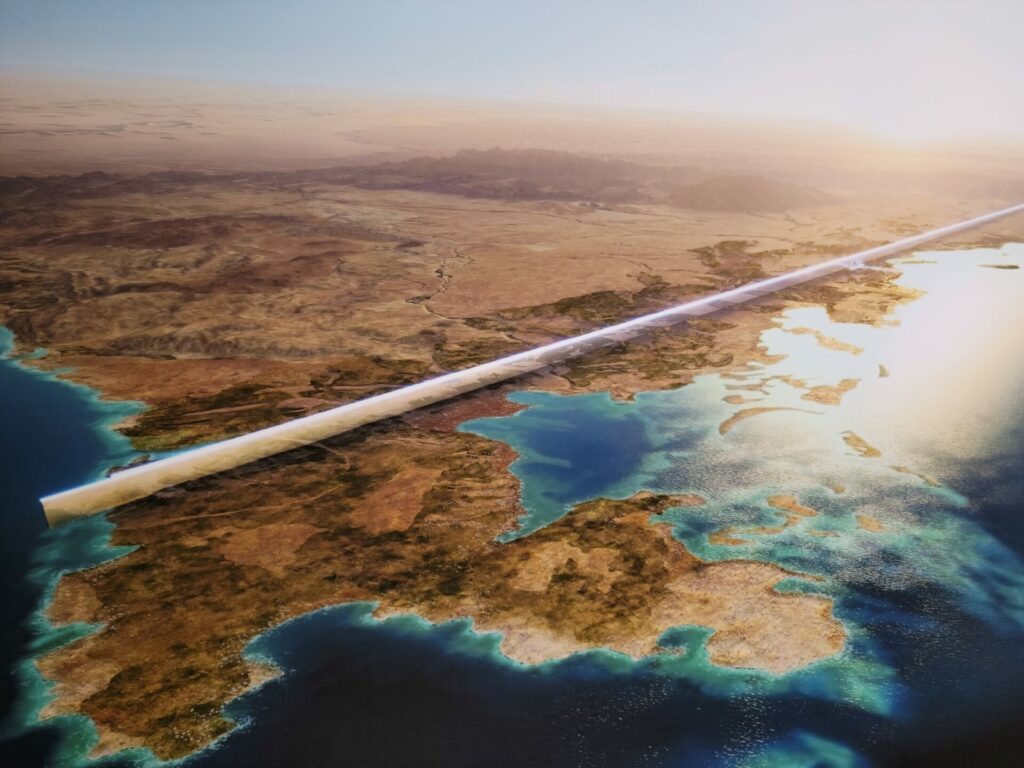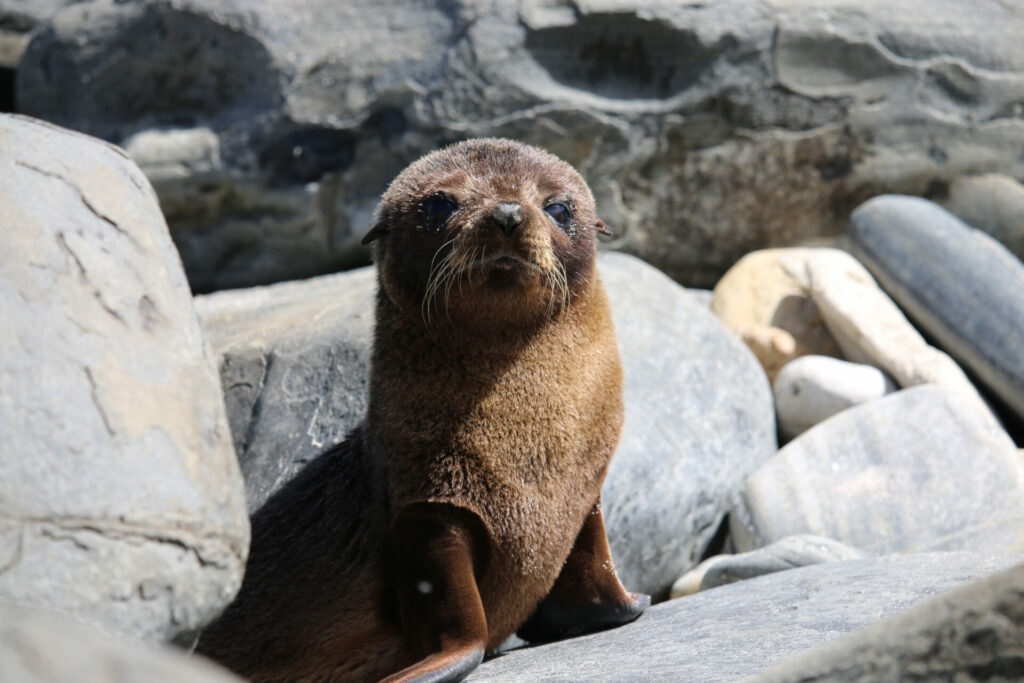We talk a lot about saving our oceans, and with good reason. They regulate the climate, generate much of the oxygen we breathe, and sustain the livelihoods of more than three billion people. Yet for all the urgency, most marine protection has been focused on coastlines and shallow waters, the parts of the ocean we can easily see and study.
The deep sea, by contrast, is a whole other world entirely. It makes up over 90 per cent of the ocean’s volume, yet less than five per cent has been explored and only a tiny portion of those discoveries have been studied enough to understand how they actually work. We have more detailed maps of Mars and the Moon than of our own ocean floor, meaning we’re trying to protect something we don’t fully understand.
‘We’re past the point of asking whether climate change is real. The question now is what we’re going to do about it, and that starts with understanding the ocean properly’
Professor Martin Visbeck, Founding CEO of OceanQuest
Around 90 per cent of the excess heat from global warming has been absorbed by the ocean, and roughly 30 per cent of the CO₂ we emit ends up there. That buffering has protected us for decades, but 2024 was the ocean’s warmest year on record, and that comes with consequences. Warmer waters are bleaching corals and shifting species out of their natural habitats, while increasing CO₂ is making the ocean more acidic and damaging marine life. Low oxygen levels are turning parts of the ocean into dead zones where species can’t survive.
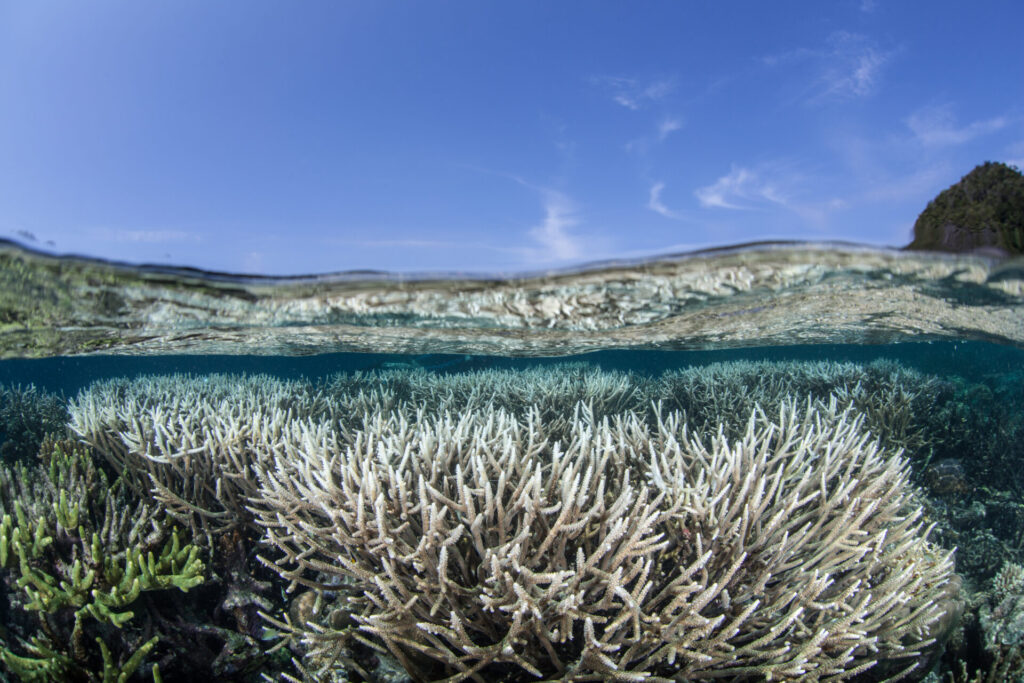
The ocean cannot keep absorbing our excess forever, which is why knowledge, not guesswork, has to guide what comes next. As Professor Martin Visbeck, founding CEO of Saudi based non-profit OceanQuest and a leading oceanographer, tells The Ethicalist, understanding must come before action.
‘We’re past the point of asking whether climate change is real. The question now is what we’re going to do about it, and that starts with understanding the ocean properly. If we don’t know how it works, we can’t make good decisions for its future.
The vision is to build something like the NASA of the ocean…so we can explore the deep continuously and make that knowledge accessible for everyone. If more of the world can see and understand the deep, more of the world can protect it
Professor Martin Visbeck, Founding CEO of OceanQuest
He adds that ‘we need to shift from anxiety to urgency, because solutions already exist and more are emerging.’
Professor Martin calls this Ocean Optimism not in a naïve ‘everything will be fine’ way, but one that stems from a belief in science and innovation. It’s an approach rooted in curiosity.
‘I’ve always been drawn to the ocean,’ he says. ‘It keeps you curious, because you realise very quickly that we don’t have all the answers. But that’s a positive thing, it means there is space for learning, solutions and action.’
And progress, he notes, is already happening. A decade ago, ocean health was rarely part of climate discussions; today, it’s recognised as central to resilience, policy and global cooperation.
From Mindset to Mission
If the next chapter of ocean stewardship is about informed, solution-focused action, then we need tools that allow us to understand the ocean properly, not just at the surface, but at depth. That is where OceanQuest comes in.
Rather than another research project or academic institution, OceanQuest was created as a global platform dedicated to accelerating ocean discovery in a way that opens deep-sea knowledge to scientists, policymakers, and educators. The goal is to make the deep sea visible so decisions can be made based on evidence, not assumption.
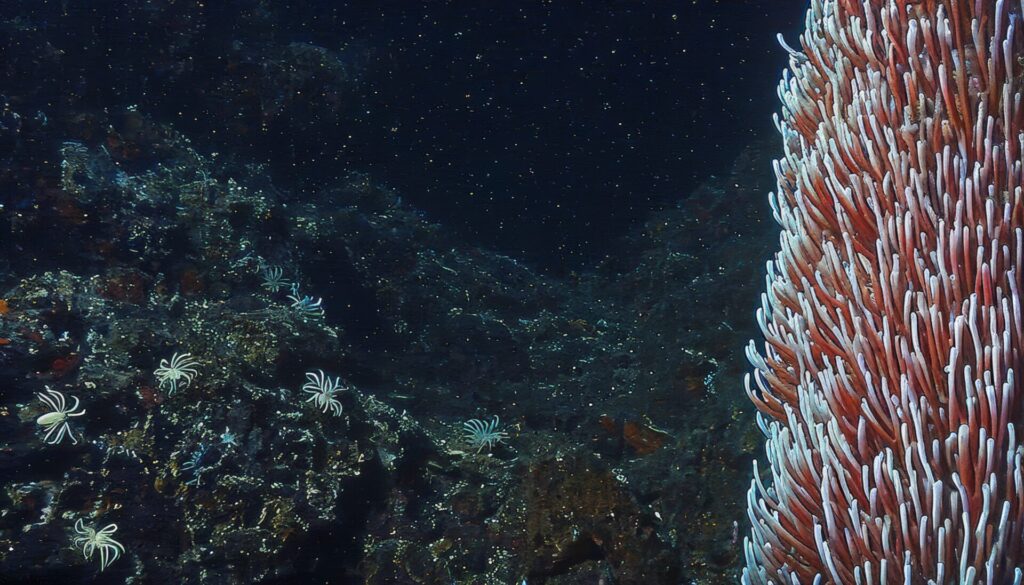
So what exactly will OceanQuest do?
At its core, OceanQuest is building a new model for ocean exploration. Rather than relying on occasional deep-sea expeditions that gather data and vanish into academic journals, OceanQuest plans to continuously study the deep ocean using a fleet of advanced robotic explorers, AI-powered mapping, and real-time data sharing. The mission is to create a constantly updated picture of what is happening 200 metres below, and make that knowledge open and usable for scientists, educators governments, and the public.
‘The deep ocean is more hostile than space. It’s dark, corrosive, high-pressure, and beyond the reach of GPS or radio signals. But robotics and AI now allow us to explore continuously, map ecosystems in detail, and share that knowledge in real time. It’s a game-changer’
Professor Martin Visbeck, Founding CEO of OceanQuest
‘For decades, deep sea science was limited to a few nations with the vessels and budgets to go there,’ he explains. ‘OceanQuest is changing that model. The vision is to build something like the NASA of the ocean, a platform that brings science, technology and storytelling together so we can explore the deep continuously and make that knowledge accessible for everyone. If more of the world can see and understand the deep sea, more of the world can protect it.
‘For the first time, we have the technology to explore the deep in a far more responsible way,’ he says. ‘We don’t need to interfere or extract in order to learn — and that gives us a real opportunity.’
A New Era of Exploration
One of OceanQuest’s first priorities is to shine a light on an ecosystem most of us never think about: the deep sea mountains, or seamounts, that rise thousands of metres from the ocean floor. These submerged volcanoes are, as Professor Martin explains, ‘the oases of the deep sea — biodiversity hotspots where life gathers, breeds and thrives.’ They are to the ocean what rainforests are on land, yet of the 14,500 that have been identified, over 90 per cent have never been scientifically explored.
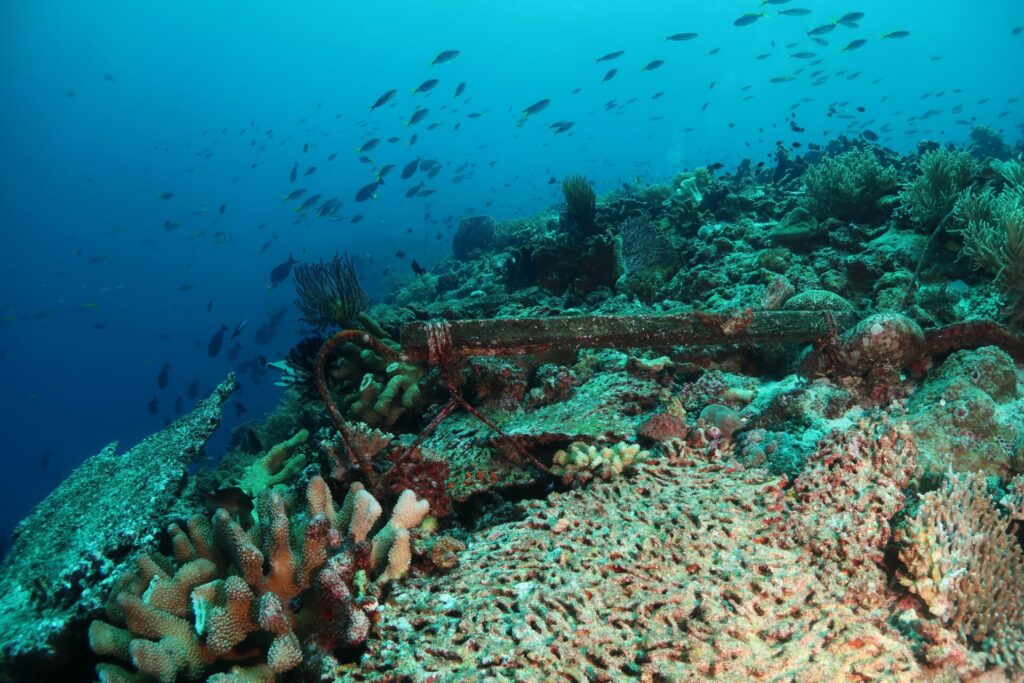
Although hidden far below the surface, seamounts behave like underwater worlds of their own. Many form clusters, creating vast systems that act like stepping-stones for marine life. Tiny organisms, fish and even predators use ocean currents to move from one seamount to the next, feeding, breeding and migrating along these invisible underwater highways. Understanding how these systems function, and how the shallow and deep ocean connect through them, is central to OceanQuest’s mission.
‘Because the Red Sea is so deep, so warm at depth and geologically young, it’s a really interesting place to study how marine life adapts to heat. What we learn here can help us understand resilience in other regions.’
Professor Martin Visbeck, Founding CEO of OceanQuest
From its base in Saudi Arabia, the foundation is building capacity not just for the region, but for countries that lack the resources, vessels or technology to access the deep sea. Supported by the royal family and developed in collaboration with global ocean advocate Ray Dalio, OceanQuest is creating what Martin describes as ‘a targeted global programme’ that is focusing on the Red Sea, Indian Ocean, South Atlantic and Mediterranean. These waters, rich in culture, history and marine life, are also some of the least studied at depth.
The Red Sea, as one of the youngest oceans on Earth, offers a living laboratory. It is considered one of the youngest ocean basins on Earth, formed only about 5 million years ago when the African and Arabian tectonic plates pulled apart. Its ecosystems and geology are in a much earlier stage of development compared to ancient oceans like the Pacific or Atlantic, which are over 100 million years old.
It also behaves differently, plunging to three kilometres deep yet staying unusually warm at around 18°C compared with the typical 4°C in most deep oceans. This creates extreme conditions that few marine species can tolerate, which is why scientists believe the Red Sea may hold clues to how ocean life can adapt to warming oceans.
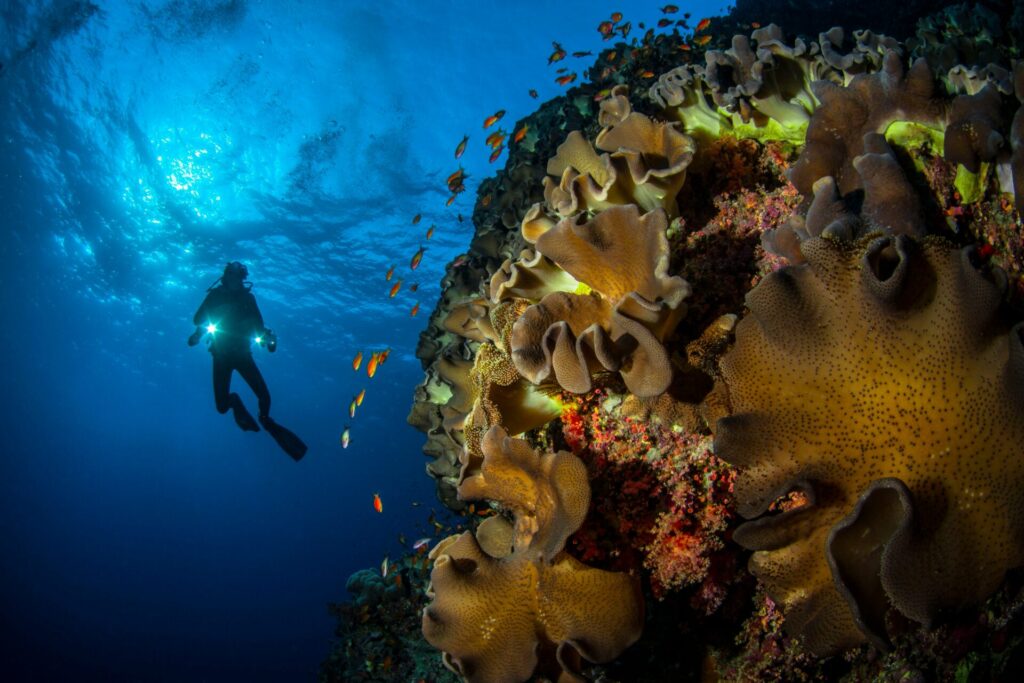
‘Because the Red Sea is so deep, so warm at depth and geologically young, it’s a really interesting place to study how marine life adapts to heat,’ he says. ‘What we learn here can help us understand resilience in other regions.’
A Space-Age Approach to the Deep Sea
To unlock this knowledge, OceanQuest is developing a next-generation deep-sea research vessel equipped with up to 20 state-of-the-art robots, a scale never before attempted. Unlike manned submersibles, which are costly and high-risk, these autonomous and remotely operated vehicles can explore for longer, go deeper, and most importantly, make research safer and more sustainable.
‘The deep ocean is more hostile than space,’ Professor Martin explains. ‘It’s dark, corrosive, high-pressure, and beyond the reach of GPS or radio signals. But robotics and AI now allow us to explore continuously, map ecosystems in detail, and share that knowledge in real time. This is a game-changer.’
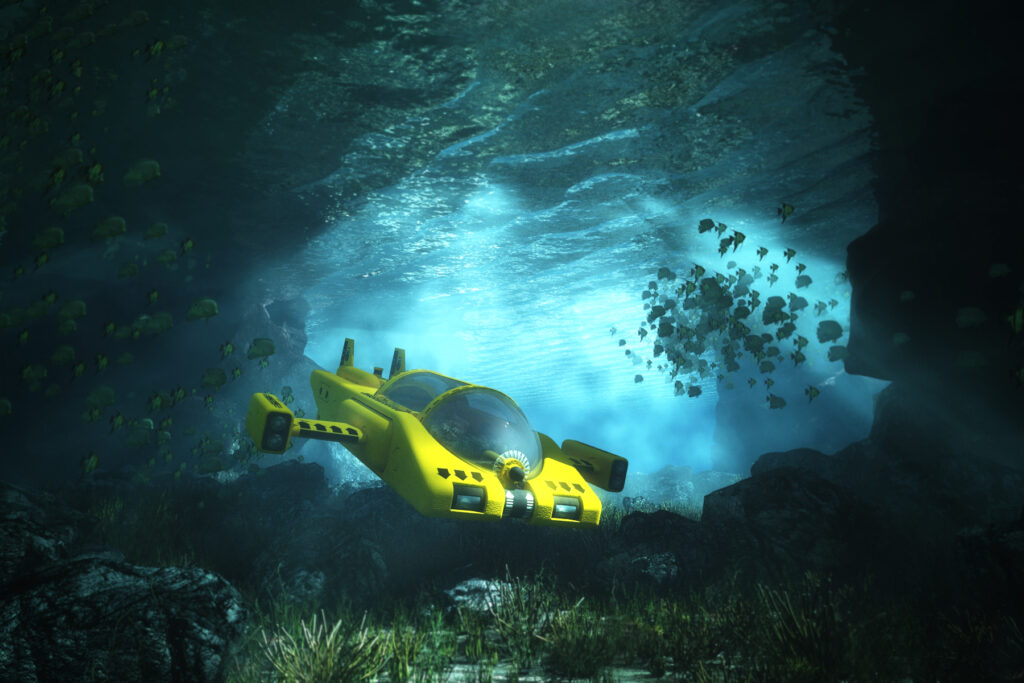
Alongside physical exploration, OceanQuest is pioneering the Digital Twin of the Ocean, a virtual model of deep sea ecosystems that allows scientists and decision-makers to test scenarios before acting in the real world. Just as aviation, medicine and engineering test designs digitally before implementation, this digital twin would enable countries to plan marine protection, sustainable development and climate adaptation with far greater precision.
‘Digital twins are really just a digital version of something real,’ Professor Martin explains. ‘We already use them on land to design cities, hospitals or even kitchens before they are built. They help us test ideas, optimise how things work, and avoid mistakes before intervening in the real world. For the ocean, a digital twin does the same, it creates a virtual model of a seamount or ecosystem so we can explore it, understand how it functions, and then make smarter decisions about protection or use.’
Should the Deep be Left Alone?
Not everyone however, agrees that the deep sea should be explored. Some argue that, after decades of industrial damage to coastal waters, the most responsible thing we can do is leave the deep untouched. Professor Martin acknowledges the concern but believes the answer isn’t about withdrawal but discovering responsibly.
‘You can’t protect what you don’t understand,’ he says. ‘The deep sea is already affected by climate change, by pollution, by human activity. The choice is not between impact or no impact. The choice is between acting blindly or acting wisely.’
What OceanQuest proposes is a different model of exploration, one that gathers knowledge without extraction, mining, and disturbance. Just science, data and open access.
‘This is not about exploiting the deep,’ he says. ‘It’s about understanding it well enough to protect it before irreversible decisions are made without science.’
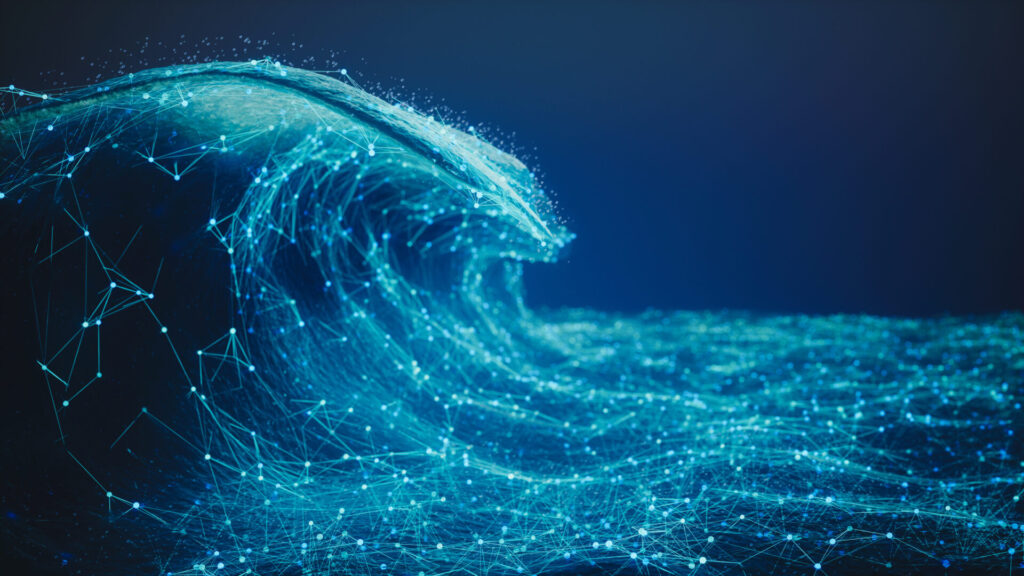
And if the deep sea is to be protected, it must be valued by people everywhere, not just researchers.
‘At OceanQuest it’s visualisation, storytelling, science and technology all in one’ explains Professor Martin. ‘We are really bringing the deep sea to life. Just like in space exploration, we want to build digital versions of what’s down there so people can see it, understand it, and be inspired by it.’
The climate conversation has long been dominated by fear and fatalism. Professor Martin believes that era must end.
‘Doom paralyses people. Optimism empowers them,’ he says. ‘Ocean optimism is not blind hope, it’s recognising that solutions exist, progress is happening. The question is no longer ‘Is this real?’ It’s ‘What are we going to do about it?’
Whether it’s policy, innovation, conservation or education, every sector has a role. ‘We don’t need everyone to do everything,’ he adds. ‘We just need everyone to do something.’
And that begins, he insists, with understanding the ocean. All of it, not just the parts we see.
To learn more visit the OceanQuest website oqfoundation.org
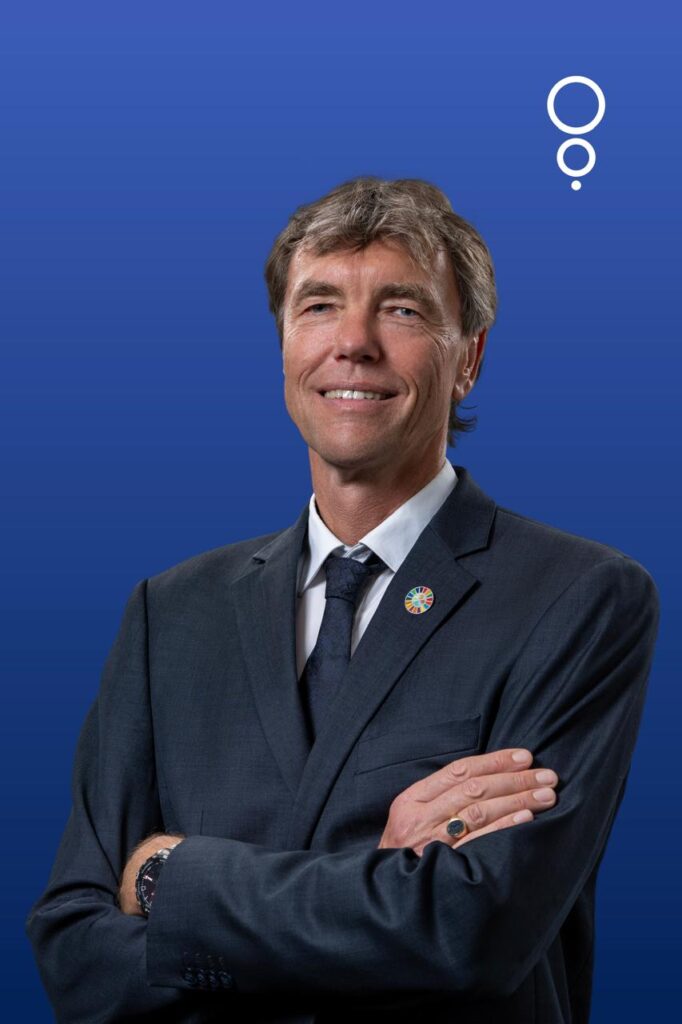
Over the past three decades, Professor Visbeck has led ocean-climate research across Europe, the US and the Middle East, collaborating with scientists on global ocean observation networks, advising governments and contributing to the UN Ocean Decade. His work has helped shape the scientific understanding of how the ocean regulates climate and how quickly that balance is changing.

